The next morning started very relaxed for us, at around 07am with a small breakfast – Pakistani omelet (omelet with various vegetables and chili), toast, butter, jam, tea and coffee. Unfortunately, we did not get back on the road quite so punctually and so we started our tour today only shortly before 10am, after Mudassir had picked Melanie a few fresh flowers.
Relatively soon after the start we passed the border to the Gilgit-Baltistan region. Ahmad gave us the hint that from now on the people would look a little different – we didn’t quite understand what he meant by that. While we were literally flying over the narrow, winding roads, we kept seeing signs on the side of the road, which made us smile slightly. “Driving faster can cause disaster” and “Road is hilly, don’t be silly” were also real eye-catchers.
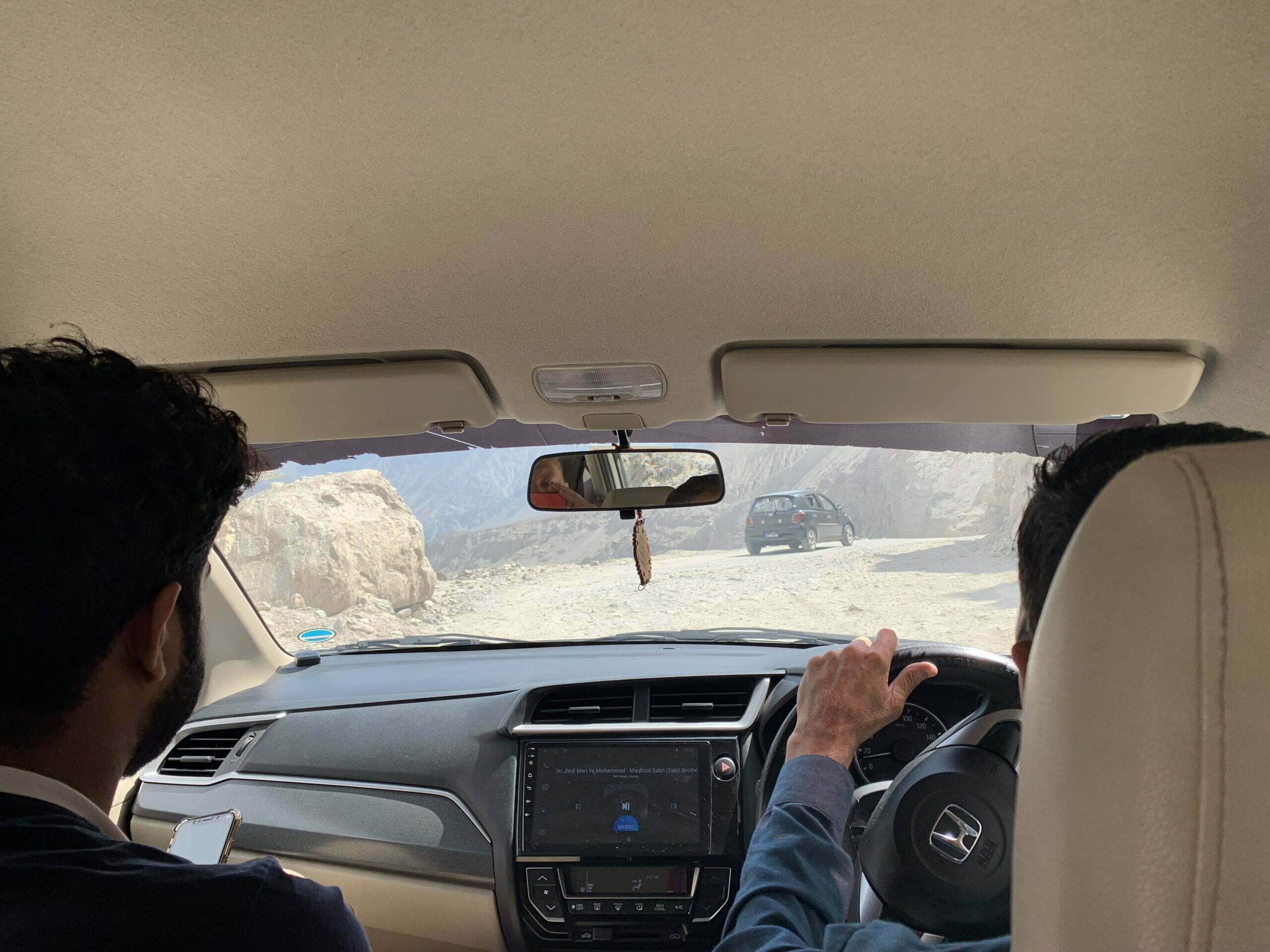
Again, our way led us over very narrow roads in places, a 3km long passage was also particularly prone to landslides. Mudassir steered the vehicle as usual over hill and dale and did not let himself be disturbed even by trucks in oncoming traffic. In absolute calmness he juggled our car in reverse gear – once again without guard rails – only a few centimeters away from the abyss.
We passed several places worth seeing on the tour: the 3 Mountains View Range, Mount Rakaposhi, the point where the Indian and Eurasian continental plates collided, hot springs and a still visible (restored) part of the old Silk Road. Once again the scenery was breathtaking and once again we didn’t know exactly where to look first.
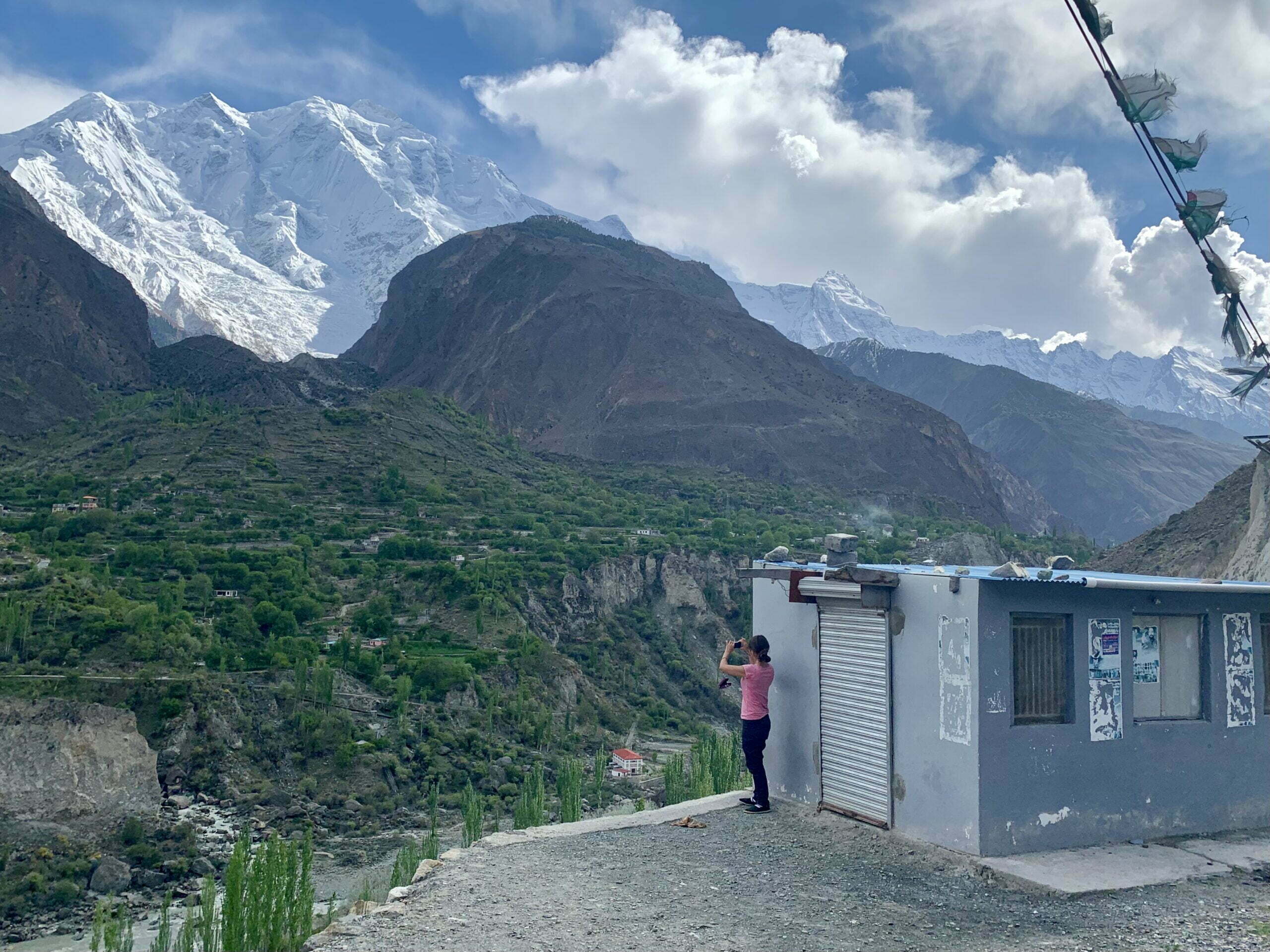
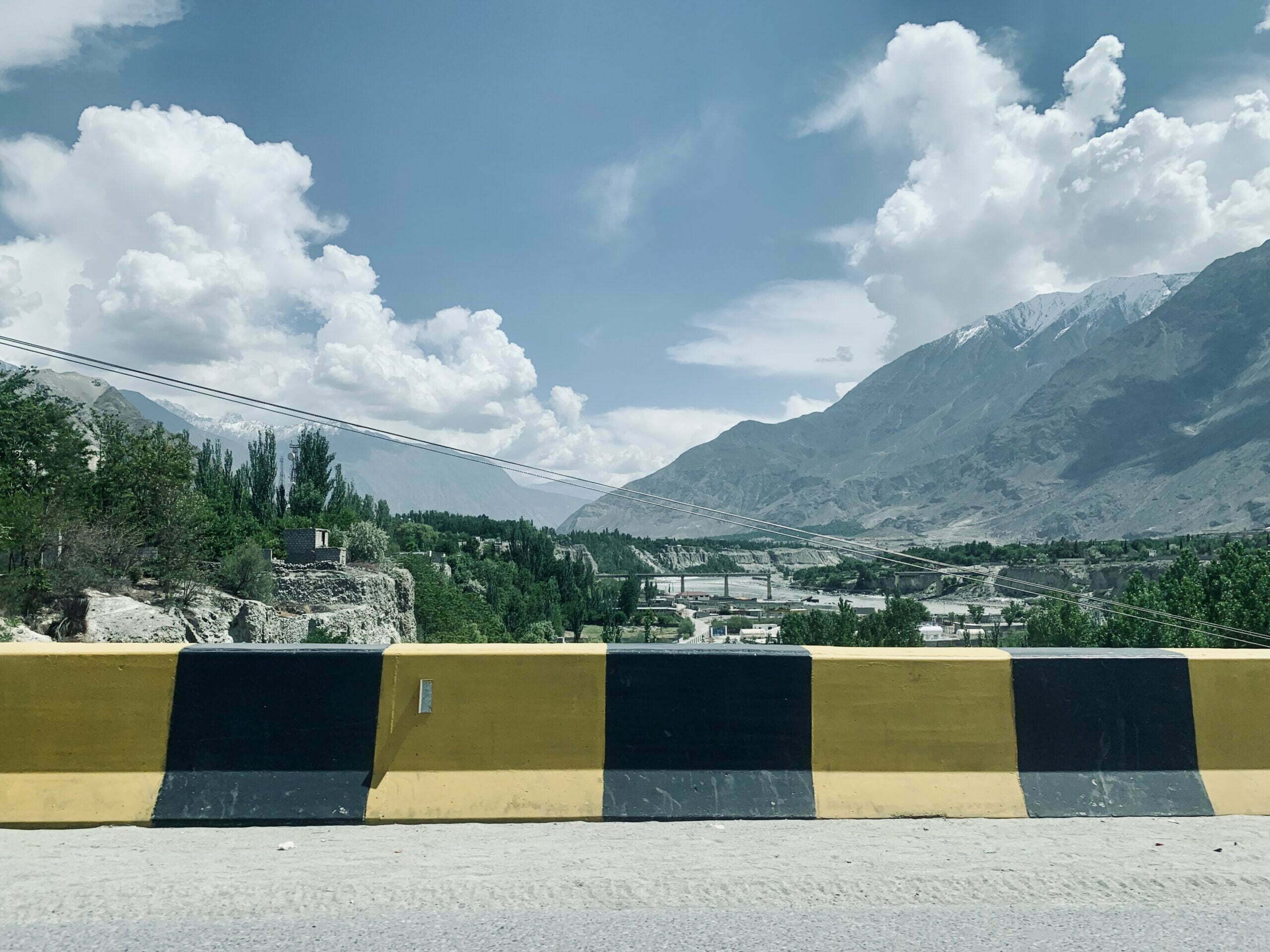
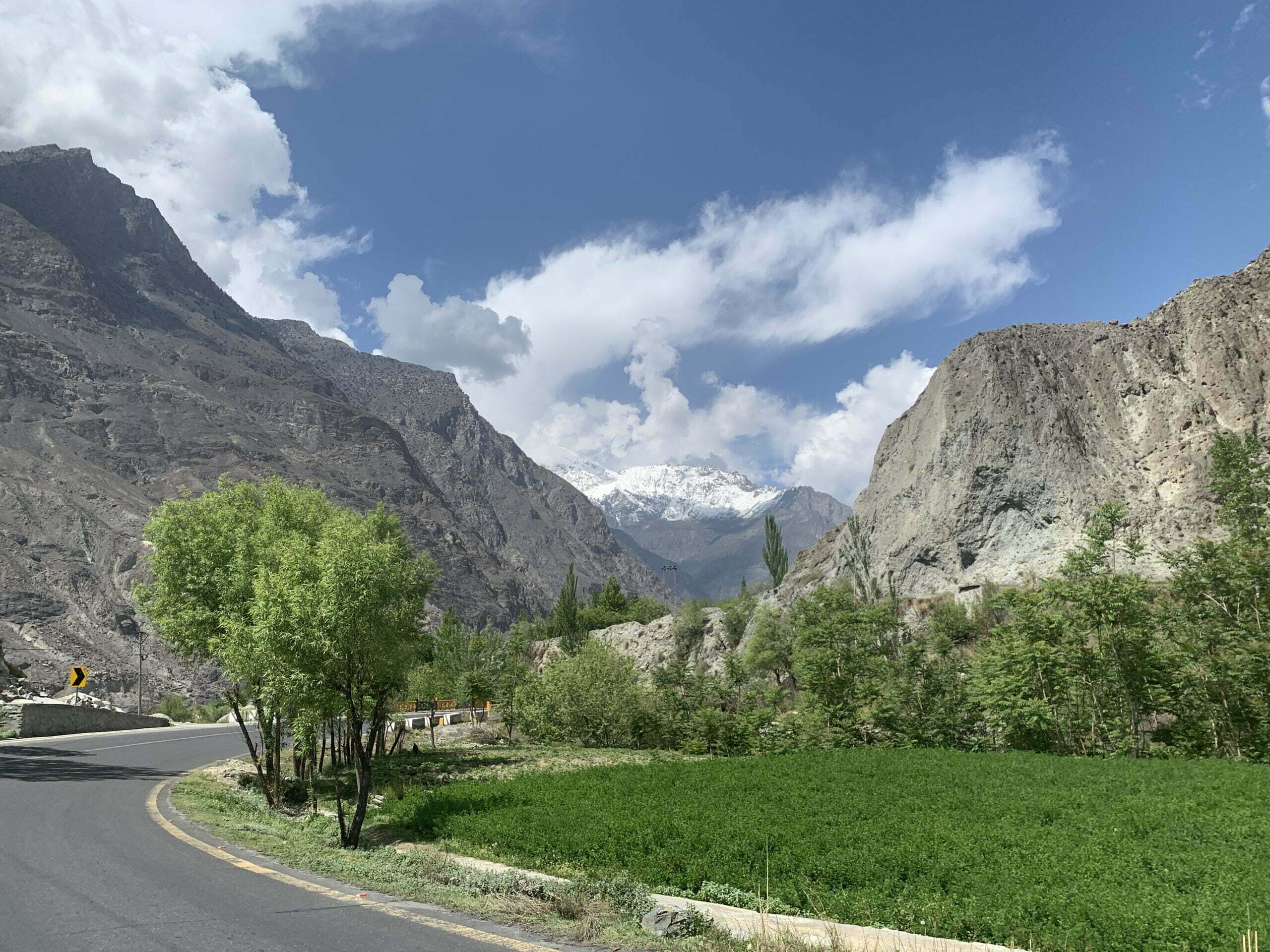
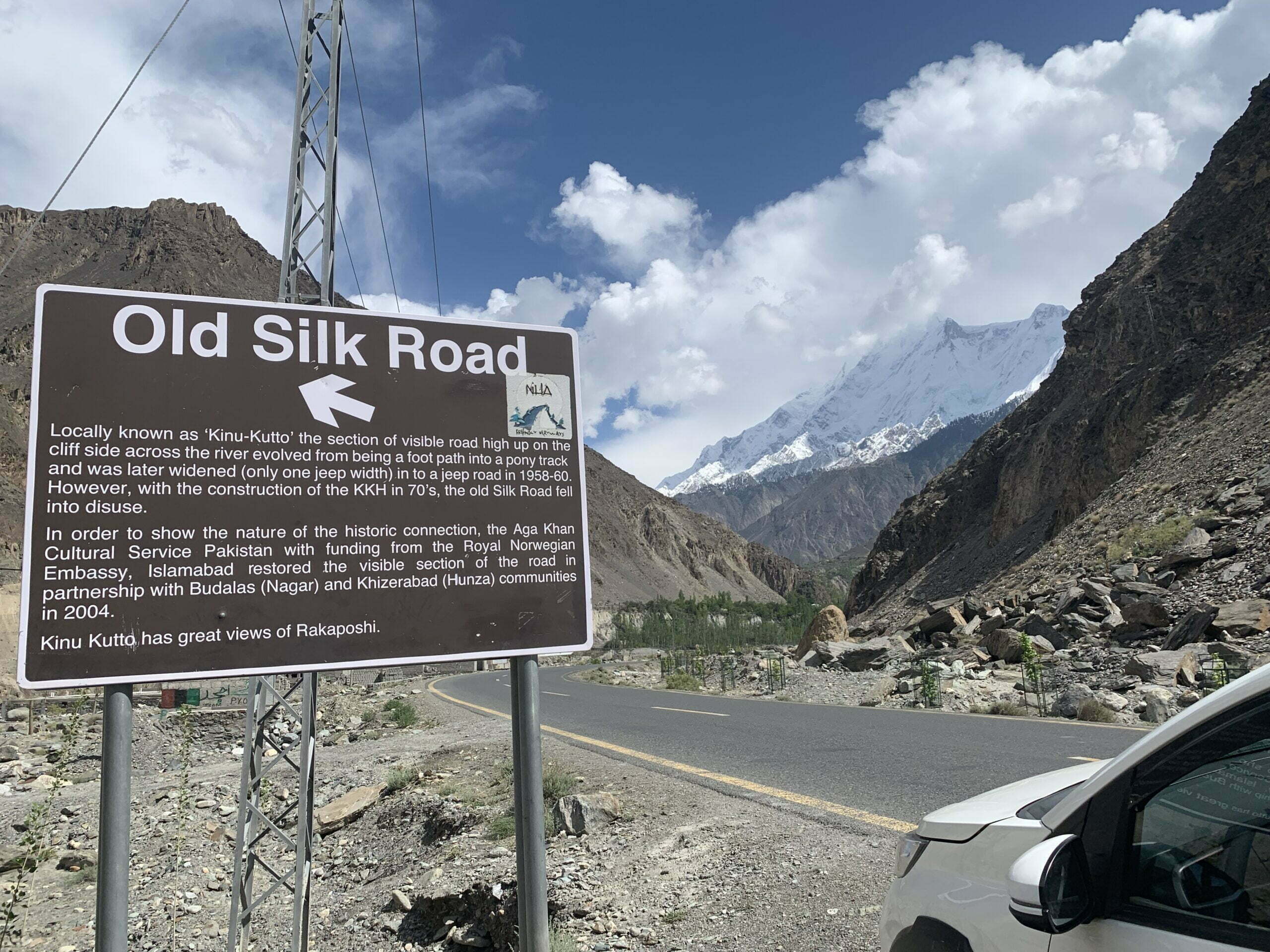
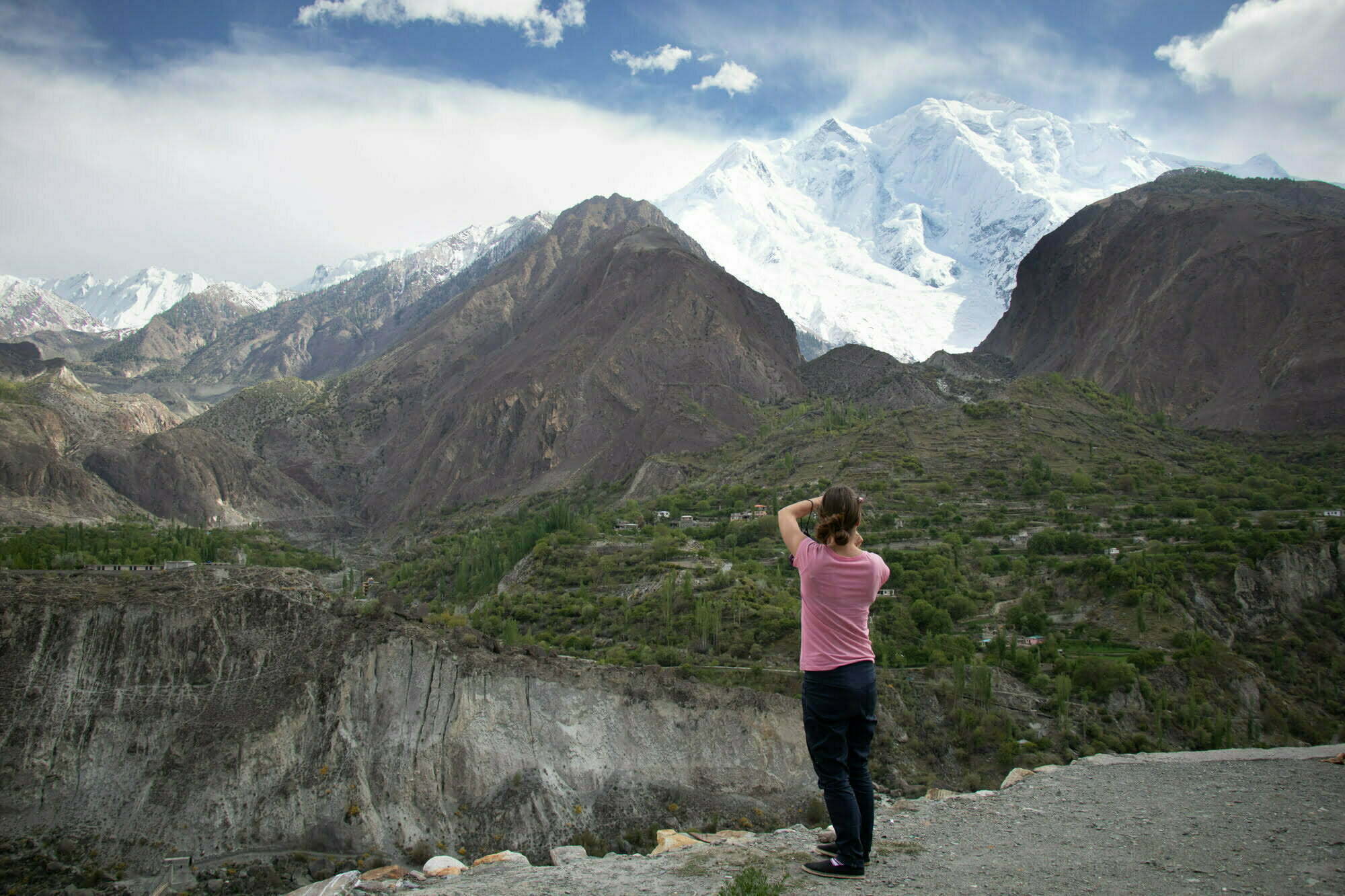
After some time we arrived in the Hunza Valley, or more precisely in Karimabad. Here should be some culture on the program today and so we all went together on the way in the direction of an old fort. Arrived in the Altit Fort we were directly welcomed by an elderly gentleman, who led us the next time through the premises, all sorts of funny and interesting about fort, people and history to tell knew.
Thus, we learned that the ruler of the time had his “rebellious” brother walled up alive in a column in a room of the fort, where the wine was also made and stored – the corpse is still on site today. Now many will say: wait a minute? Wine and Islam? Yes! Fort Altit is about 1100 years old and not always in the history of Islam there was a strict ban on alcohol. Our guide also showed us the execution place. There prisoners were forced on their knees, tied by their hands and feet and simply pushed down the 300m steep rock face. As we stood at this place and looked into the depths, we got a sense of how terrible the last moments of these people must have been.
Not far from this place there was a place which the Royal British Army used for an entrance examination in the 1800s. A recruit had to prove himself worthy by daring to jump from the fort wall about 2m to a vertical rock and back again. Either one managed this, or fell 300m into the depth – a strange ritual for us today and none of us wanted to dare this test of courage.
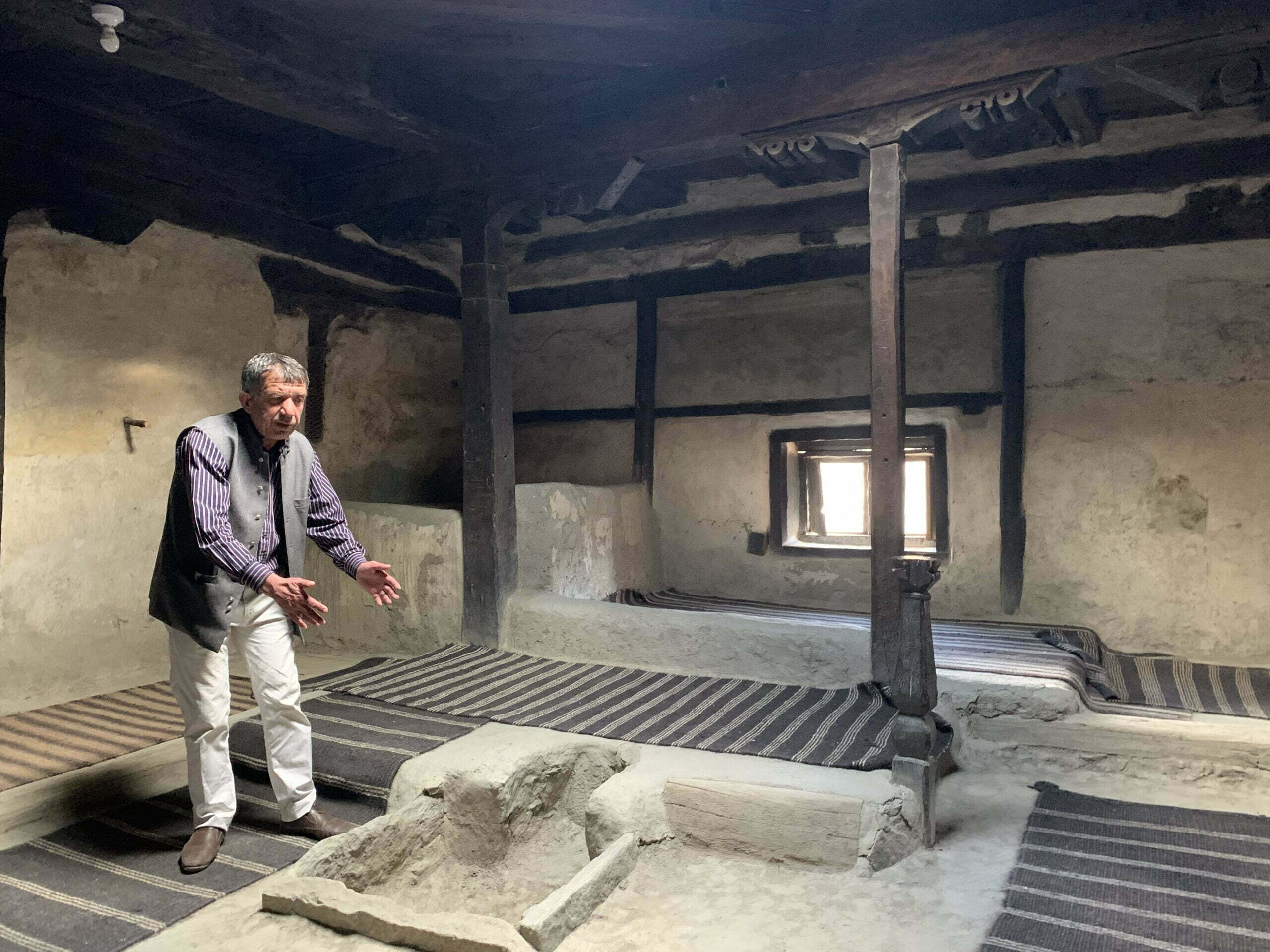
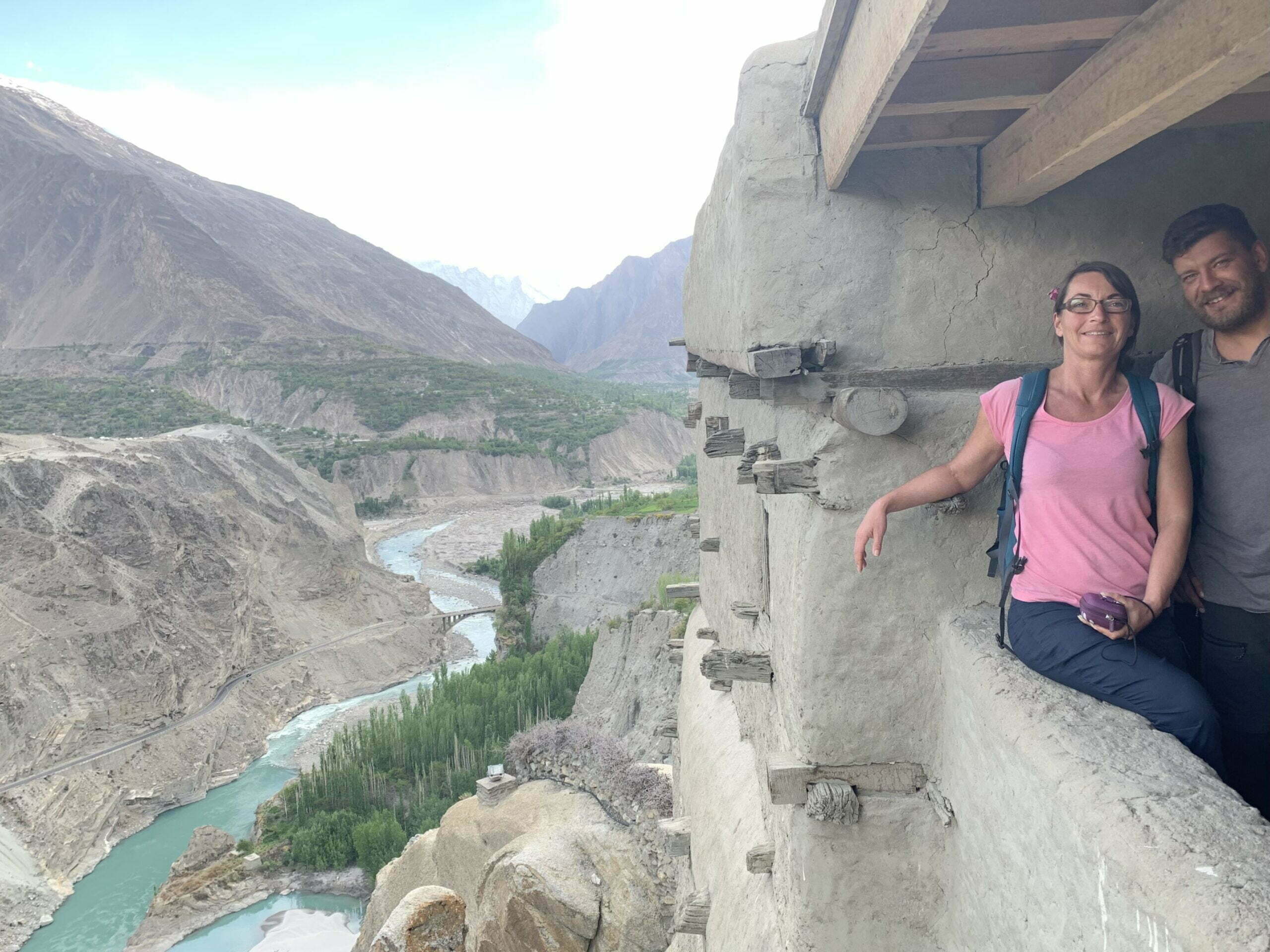
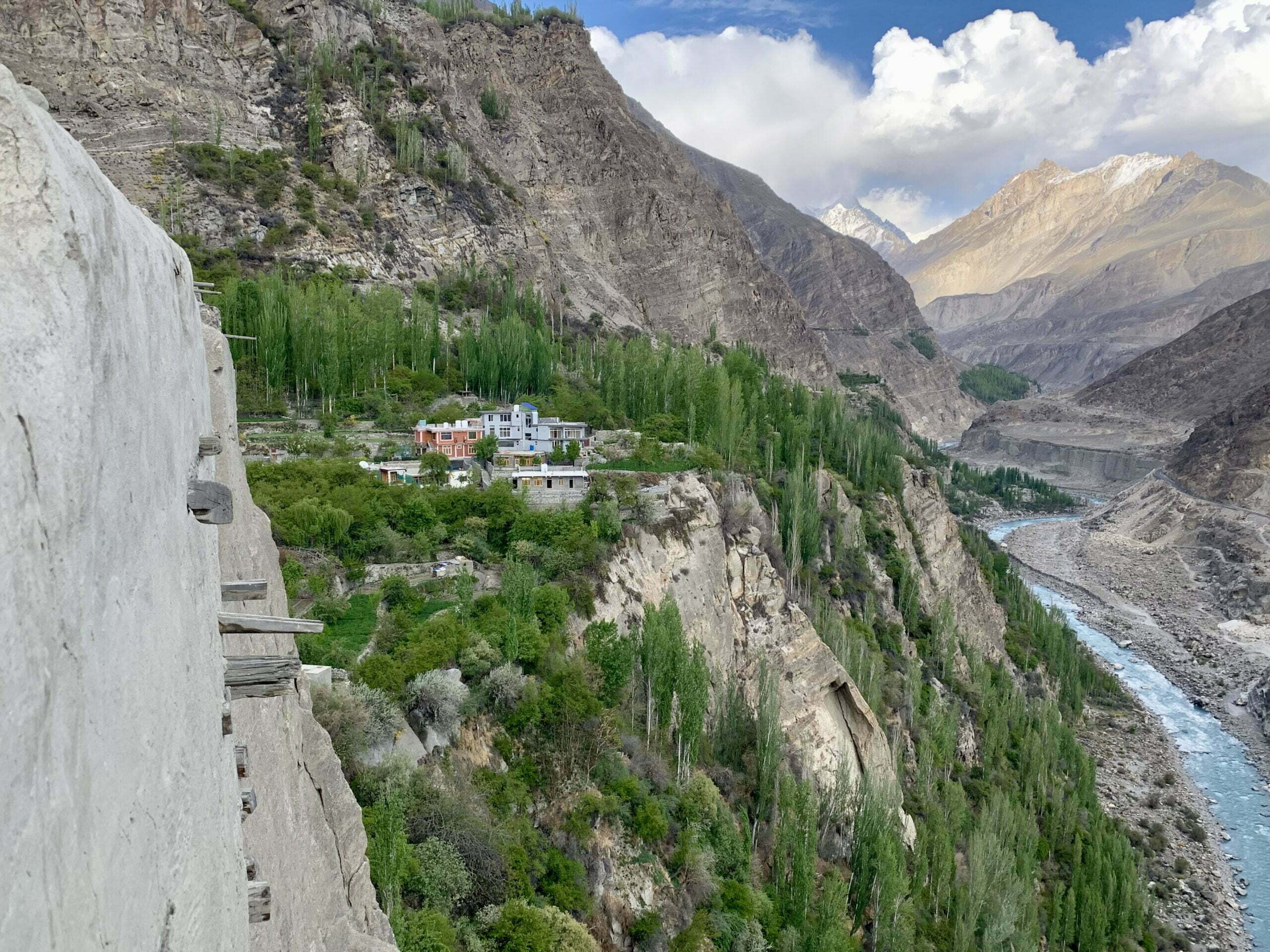
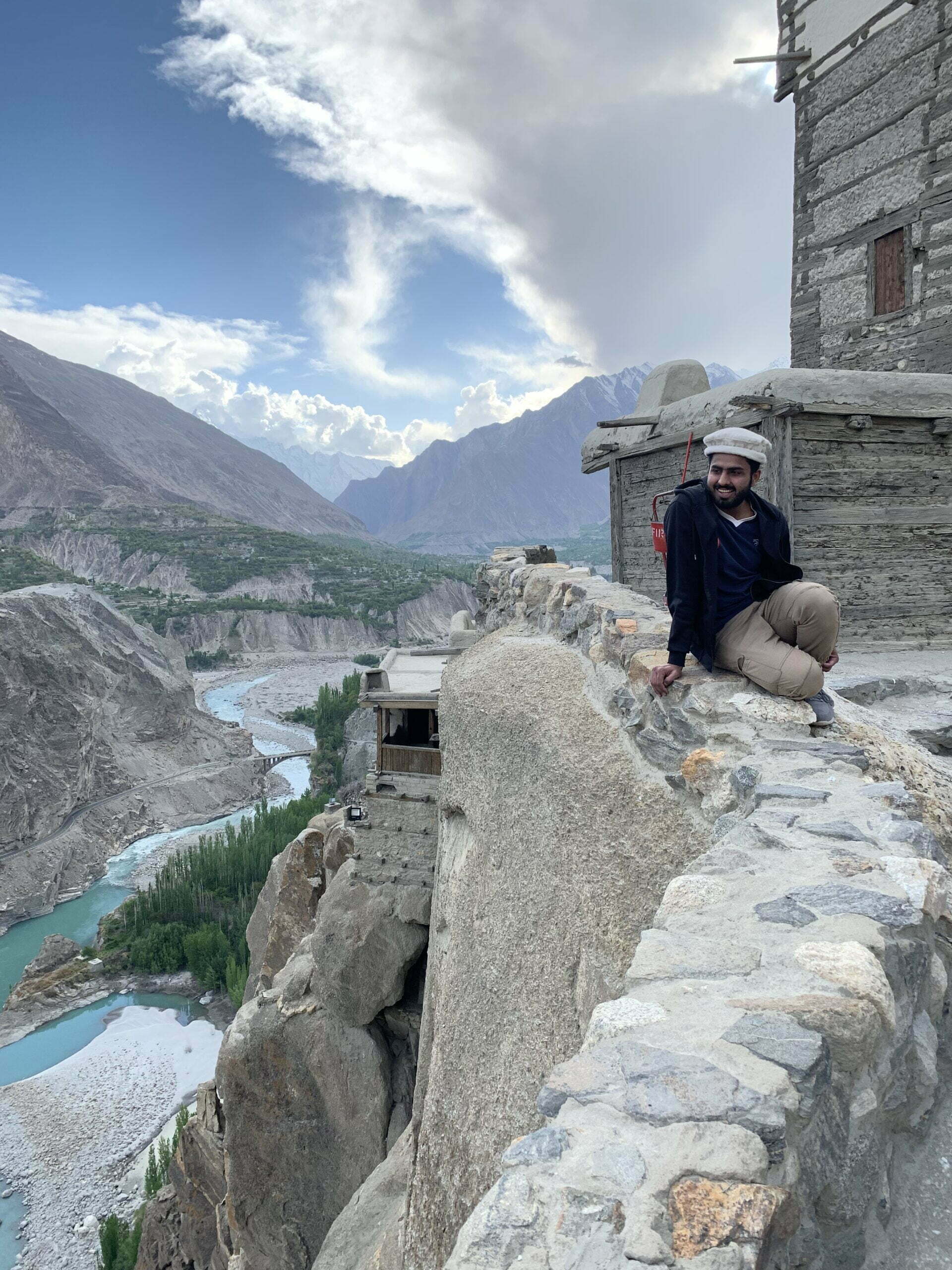
After wandering a bit through the gardens of the fort and the surrounding alleys, we all went back to our accommodation, the beautifully located Mulberry Hotel with a wonderful view. After stuffing ourselves once again with super delicious food – today we had chicken with rice and a local soup – we decided to stroll a bit more through the streets.
So we came across a small store, the Hunza Weaving Center, where several men were sitting together, talking and laughing. Ahmad actually only wanted to show us this store because of the huge stuffed ibex that stood in the store window and had been personally shot by the store owner. After a while we got to know this “legend” and we talked for about 30 minutes.
The store owner was a well-known hunter in the Hunza Valley, He actually had many photos hanging in his store: from hunting to state visits to a movie set. He had sometime in the 60’s not only tailored the costumes for a Hollywood movie and advised the shoot as an expert, but also of starred in the film. The conversation was very pleasant and interesting, the shopkeeper very sympathetic, not pushy and was also not on compulsion to sell anything. On the contrary. When Ahmad wanted to put a local hat with a feather on Andreas head, he was stopped by the owner with the indication that this kind of headgear would not be suitable for Europeans.
After we said goodbye, we walked a bit, bought some dried fruits (apricots among others) and then went to bed “early” to get at least another 5 hours of sleep.
Jahrgang 1981;
Technikfreak und Hobby-Fotograf (inkl. Videos)
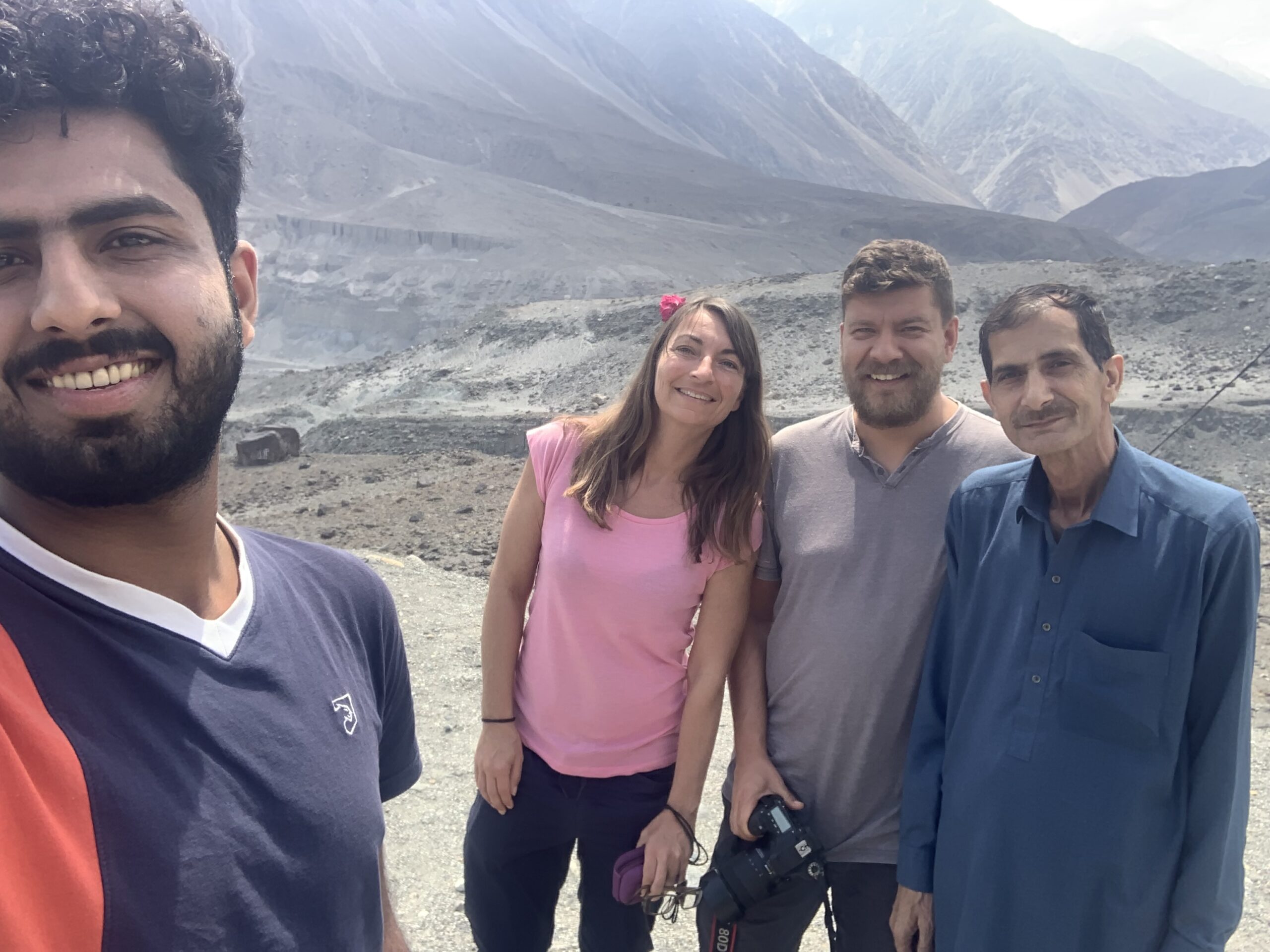
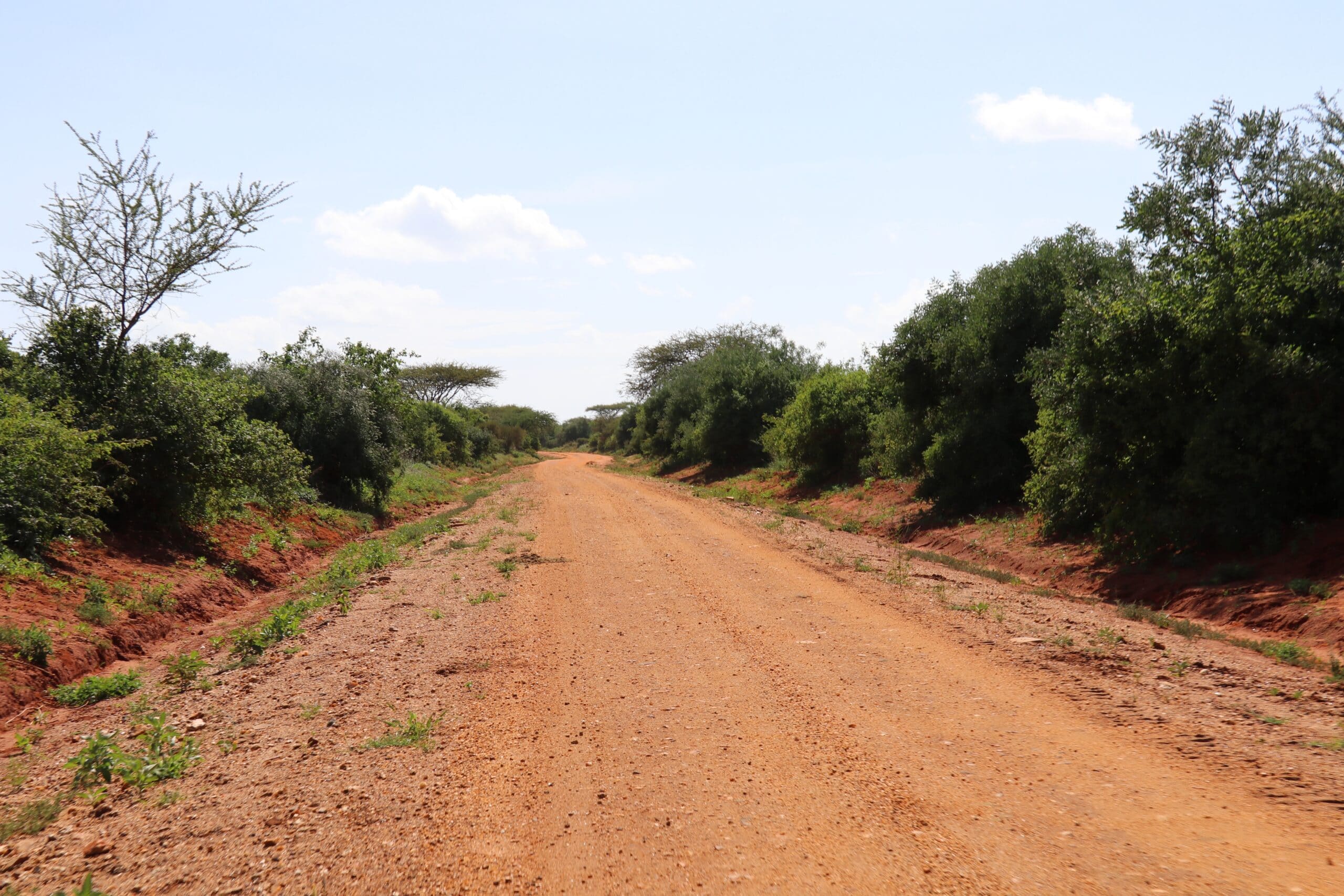
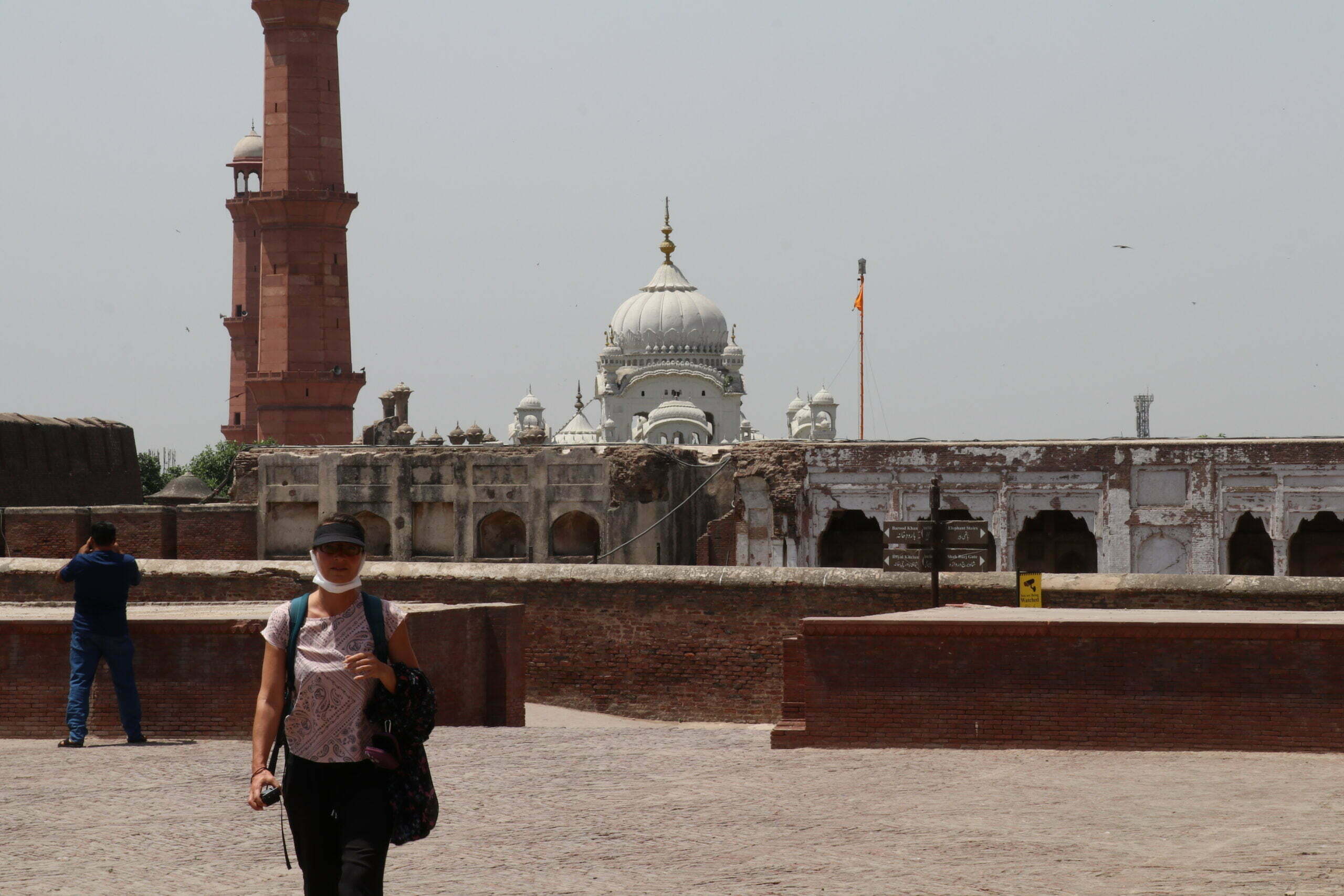
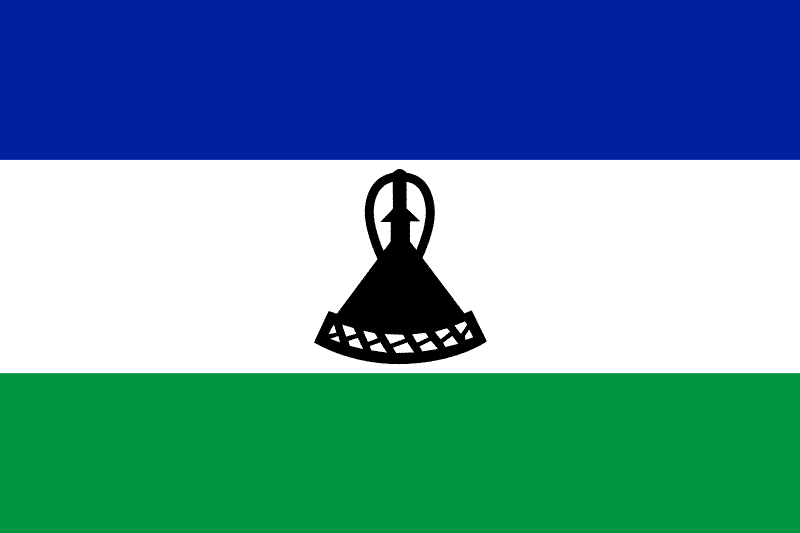

Recent Comments